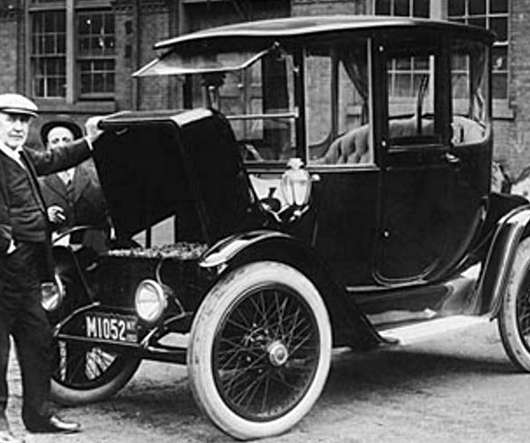UPS updates 125 Workhorse E-GEN series hybrid electric step vans with smaller genset engine for better fuel economy
Green Car Congress
MAY 3, 2016
UPS announced an update to 125 Workhorse E-GEN series hybrid electric delivery trucks that improve fuel economy as part of the company’s broader Rolling Laboratory approach. The updated trucks, which were originally purchased in September 2015, deliver up to four times the fuel economy of a gasoline-powered vehicle, UPS said.

















Let's personalize your content